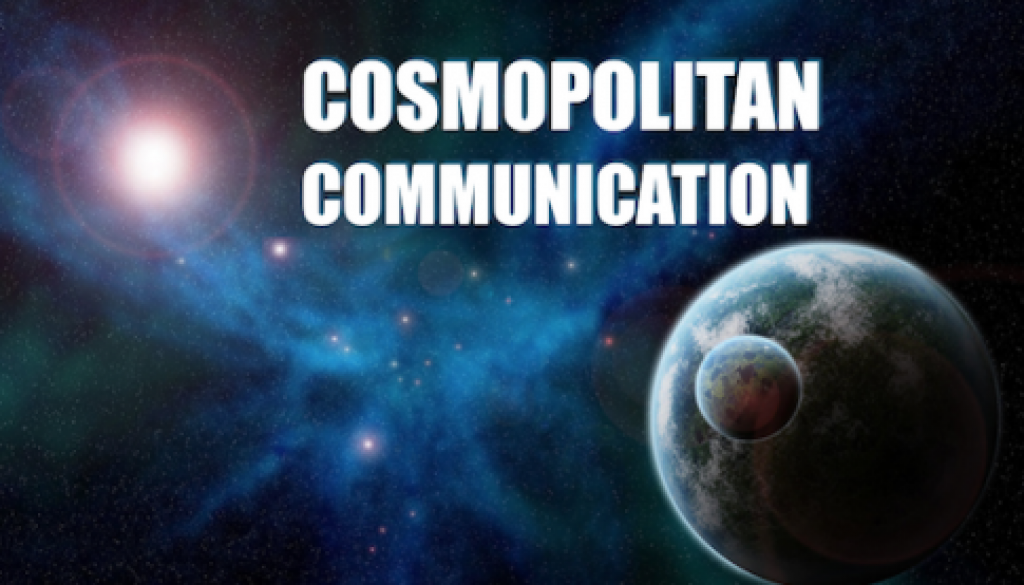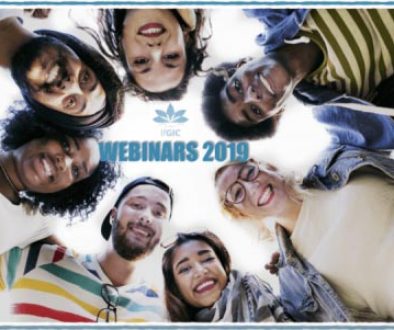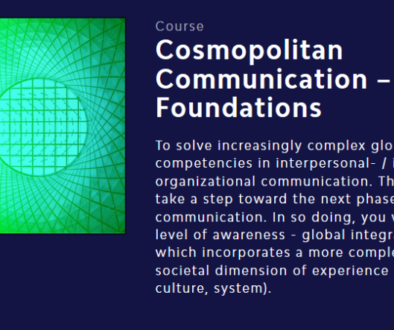“Cosmopolitan Communication – Foundations” at Ubiquity University

IfGIC created an online course at Ubiquity University:
“Cosmopolitan Communication – Foundations” will start in May 2017
Communication theory and practice have, since the beginnings, helped us to develop and improve our communication skills. Barnett Pearce suggested that we are moving from ‘ethnocentric’ to ‘modernistic’ communications. Educators, trainers and researchers have spent much time and energy developing communicative competence for children, students, business people, and people in conflict areas. However, there is still an overabundance of global issues (i.e., ethnic and religious conflict, business and political tensions, migration, global leadership crisis, the environment, economic tensions, etc.). These problems cannot be solved in isolation. Instead, we need competencies in interpersonal- / intercultural- / organizational communication, which help us work with the wholeness of an increasingly complex, globalized world. In this course, we will attempt to take another step toward the next level of communication and explore what Pearce (1989, 2007) called “cosmopolitan communication (CC).”
fullsizeoutput_1458Course Learning Outcomes
Students will be able to move into the next phase of human communication: ‘Cosmopolitan Communication.’ This kind of communication requires the development of a new level of awareness – global integral competence – which incorporates a more complete human and societal dimension of experience. Using a highly interactive format, students will look at this competence through four channels of understanding humankind, society and nature: body, mind, culture and system.
The goals of this course are for students to:
– Acquire useful knowledge about diverse theories on communication and wise insights of evolutionary process of communication;
– Explore the contours of cosmopolitan identity, and their implications for questions of social and personal identity; and
– Practice ‘Transparent Communication’ of Thomas Hübl and develop skills for holistic communication in the ‘person-in-conversation’ and ‘energy-in-conversation.’
By the end of this course, you should be able to:
● Describe a number of theories on communication
● Explain the evolutionary process of communication
● Demonstrate “Transparent Communication”
● Apply holistic communication in the ‘person-in-conversation’ and ‘energy-in-conversation.’
This course includes live webinar-workshops. Please visit Ubiquity University.


